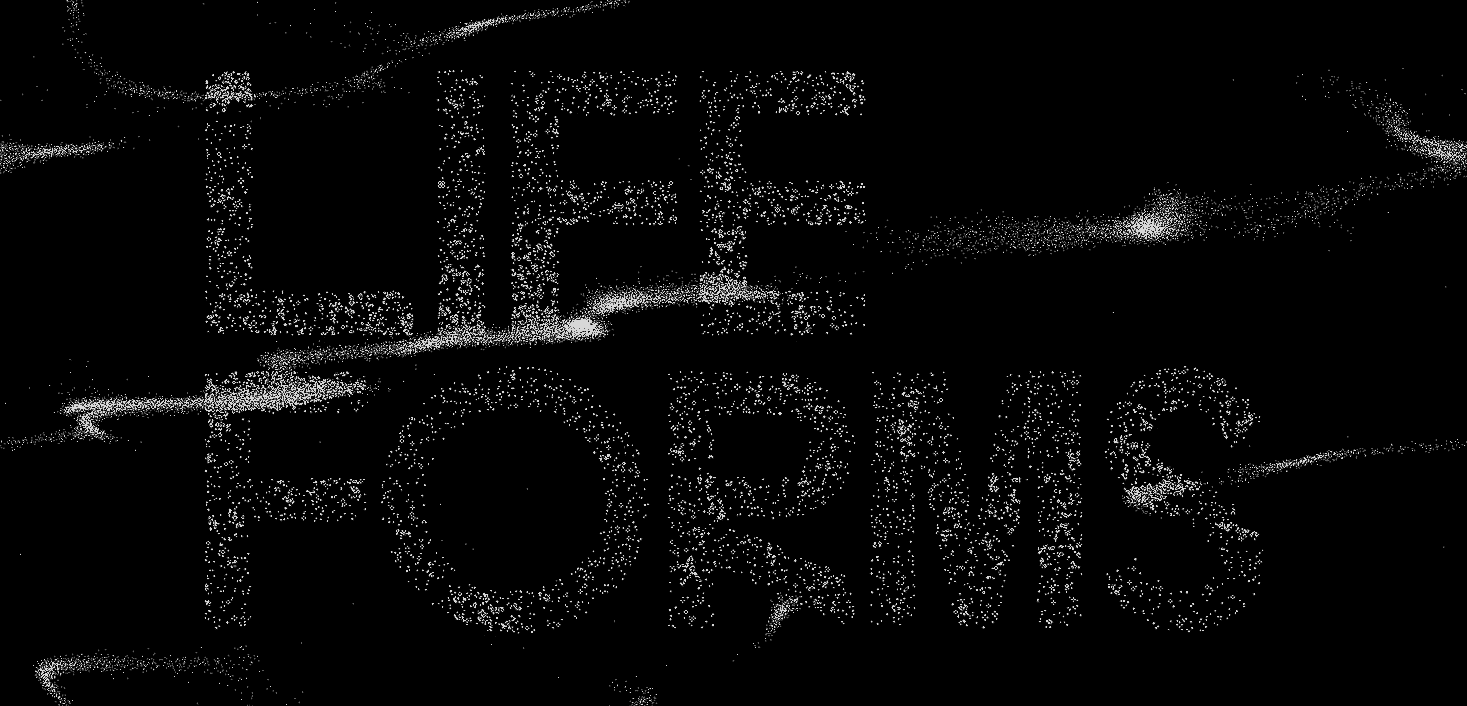Art, discourse, performance
April 25–27, 2019, 3–11pm
John-Foster-Dulles-Allee 10
10557 Berlin
Germany
T +49 30 397870
F +49 30 3948679
info@hkw.de
Life takes many different forms depending on how it is understood. The constant recombination of Earth’s systems situates humans in a permanent negotiation of the many shapes and meanings of life. Is it possible to grasp the world at the planetary-scale? Between the climatic shifts of the Earth, cultural, political and economic tumult, the increasing entanglement of human culture, natural environments and global-scale technologies is difficult to comprehend. And with this rift in understanding, the thickness of the contemporary global situation careens toward a future, in which natural evolutions, humans and their technologies each vie for organizational prominence, but with many of us on earth having little to no means for steering it. How is it that we can produce new forms of action that enable us to steer these dynamics?
In HKW’s auditorium, emptied of its seating and stage, Life Forms will use art and discourse to experiment with the Gestaltung of current and future forms of life. Two intertwined elements define the program’s structure: Choreographers Xavier Le Roy and Scarlet Yu and 16 performers from their work Temporary Title, 2015 organize the space in varying constellations to explore processes of individual and social change. Their work questions the lines separating human/non-human, object/subject and transformation/transition/modification. While at first sight it can appear as something external to contemplate, its durational quality transforms it into a landscape, a space where perception can be faster than actions; a situation where maybe time can wait. This landscape, shaped by varying forms and formations of speakers, performers and the audience, sets the stage for research conversations between historians of science Sophia Roosth and Luis Campos, philosopher Maria Chehonadskih, author Hu Fang, literary scholar Melody Jue and anthropologist Elizabeth A. Povinelli on different approaches to the notion of “life forms.” They ask how Idealized Forms have come to shape the understanding of life and discuss the Formation life creates within each environment. They explore how a modeled Landscape of conditions for life as well as practices of Making forms of life could situate the understanding of life.
Woven into this structure, artists, practitioners and theorists will discuss ten speculative questions about the relationship between life and form in the contemporary situation. In Who do we care for? psychosocial theorist Lisa Baraitser analyzes the institutional and temporal dimensions of social care work. For How Long Is an Echo?, composer and artist Marina Rosenfeld conceptualizes a series of sonic interventions within which literary scholar Louis Chude-Sokei analyzes the echo of the past and the forces guiding larger processes of becoming other. In her live performance nimiia vibié (2018) during How Do You Incorcoporate Meaning?, artist Jenna Sutela uses machine-learning algorithms that interpret language patterns from extremophile bacteria to form an alien audiovisual poetry. Artist and design researcher Sascha Pohflepp provides a framing of the question How Do You Know It When You See It? that challenges notions of recognition through the presence of an “artificial life” algorithm that visually reacts to other life forms in the room.
Over the course of the three days, lectures and discussions, performances, visual and acoustic formats produce a constantly changing landscape. Jointly, artists, scientists, practitioners and theoreticians explore possibilities for collective action and shared practices that enable dealing with the current conditions for life on Earth.
With further contributions by Maya Indira Ganesh, Wesley Goatley, Yuk Hui, Noël Yeh Martín, Luciana Parisi, Kaushik Sunder Rajan, Bronislaw Szerszynsnki, Gary Tomlinson, John Tresch
Concept and realization by Katrin Klingan, Nick Houde, Janek Müller, Johanna Schindler and Christoph Rosol in collaboration with Bernard Geoghegan
Concept of the choreography: Xavier Le Roy, artistic collaborator: Scarlet Yu and performers: Alexandre Achour, Jorge Alencar, Saša Asentić, Christian Bourigault, Sherwood Chen, Christine De Smedt, João dos Santos Martins, Ben Evans, Zeina Hanna, Alice Heyward, Becky Hilton, Hélène Iratchet, Xavier Le Roy, Neto Machado, Sabine Macher, Julia Rodriguez, Salka Ardal Rosengren, and Scarlet Yu.
Life Forms is the last event of the Technosphere research project, which has been dealing with the dilemma of the increasing interconnections of human culture, natural environments and global technologies since 2015. The online publication Technosphere Magazine issues project-related thematic dossiers that now encompass 130 essays, academic and artistic articles, and tie them together into new narratives about the Technosphere. The final publication, Technosphäre, will appear in April 2019 as part of the HKW book series 100 Jahre Gegenwart Bibliothek (in German).
Life Forms is part of The New Alphabet (2019–2021), funded by the Federal Government Commissioner for Culture and the Media based on a ruling by the German Bundestag. Technosphere (2015–2019) collaborates with the publishing platform continent. toward experimental communication of project outputs.
Contact:
Anne Maier
Haus der Kulturen der Welt
T+49 30 39787 153/196
anne.maier [at] hkw.de

